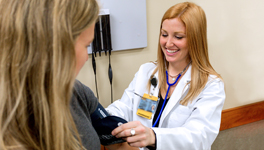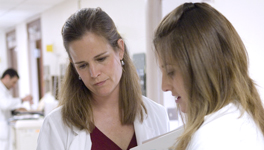
3/18/2016
Gregory Burger
Gregory’s Story
Dr. Gregory P. Burger, Pharm.D., CPPS, graduated from the University of Kansas School of Pharmacy in 1991 with a Doctor of Pharmacy degree. He is a Certified Professional in Patient Safety (CPPS) from the National Patient Safety Foundation. Dr. Burger is also the Immediate Past President-Kansas Council of Health-System Pharmacy and is serves as Adjunct Faculty for the University of Kansas School of Pharmacy, where he teaches an elective on Medication Safety and Error Prevention. Dr. Burger has been on the House of Delegates the last two years and is currently on the Medication Safety Section Advisory Group.
Facility
Stormont Vail Health is a 586-licensed bed acute care referral center based in Topeka, Kansas. It is a recognized Magnet Hospital, Trauma Level II, NICU level III, Stroke, MI and Total Joint Center and Joint Commission-accredited. Stormont Vail Health is affiliated with Health Innovations Network of Kansas (HINK). Approximately 30 facilities are associated with SVHC, which includes 396 physicians with medical staff privileges and approximately 200 physicians employed by SVHC and 4,500 employees.
Significant Projects
Dr. Burger recently switched jobs after working as a Clinical/Staff Pharmacist for Lawrence Memorial Hospital (LMH) for almost 24 years. Dr. Burger served as the residency preceptor on medication safety at LMH and spent a great deal of time working on medication safety projects as well as staffing. His new position is a full time position in Medication Safety within the Risk Management Department.
Advice for Someone New to Your Specialty Area
“Get out and introduce yourself to all the other departments in your organization. You will be surprised on how much medication safety touches on all areas of the hospital. You will find that you can be a resource for many different topics in medication safety. For example, I am involved with patient safety rounds with administrative leadership. Two weeks ago we were visiting Human Resources (HR). At first I thought, what could I possibly contribute to the rounds in HR? However, once I was there I discovered that employee health was part of HR and we discussed vaccine administration and storage. We also briefly discussed the new USP <800> guidelines and the possible need for employee medical surveillance for staff handling hazardous drugs on a daily basis.”
Involvement with ASHP
“It is very important to be involved with your professional organizations. Without these organizations we can’t advance the practice of pharmacy. We need our professional organizations to advocate on our behalf by working with legislators on issues important to our profession such as provider status, collaborative practice, pharmacy tech certification, etc. Our professional organization also works with other organizations such as the American Medical Association, and other medical interests (pharmaceutical companies, regulatory agencies (FDA, Joint Commission, etc.).”
ASHP’s Value to Members
“I actually wrote a blog on ASHP connect about Affiliate Membership Value. This could apply to ASHP membership and value as well. The title is: Affiliate Membership: Value to your profession, your patients, and yourself!”

Inpatient Care Practitioner


